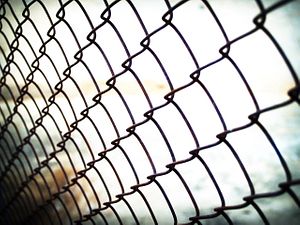Earlier this month, the Indonesia’s state-run ANTARA news agency reported that the country’s foreign ministry is encouraging the integration of correctional facilities into its national counterterrorism strategy in an attempt to make it more comprehensive. The development captures Indonesia’s long and still ongoing struggle with the prison challenge in its fight against terrorism amid the rise of the Islamic State.
Indonesia’s prison system has long been one of the chief obstacles the country has faced in its battle against terrorism. Prisons are often corrupt, overcrowded, and poorly funded, making it easier for pro-ISIS networks to penetrate them through information-sharing and even indoctrination. And post-release monitoring of convicted terrorists is often poor, which significantly increases the chances of recidivism.
These same issues were heard back when the country confronted the Al-Qaeda-linked Jemaah Islamiyah in the 2000s, and they still are a concern today as Indonesia battles the Islamic State threat. Indeed, police have said that previously jailed extremists have been implicated in several successful or foiled attacks, including the terror attacks in Jakarta on January 14 last year (See: “Islamic State Attack in Indonesia? A Look at the 2016 Jakarta Bombings”).
Indonesian authorities are aware of the challenge and are attempting to address it. For instance, as I noted before, following the January 2016 attacks, the government of President Joko “Jokowi” Widodo sought to increase funding for deradicalization efforts, which included distributing leaflets and making educational television programs targeted at terror convicts in jail as well as better monitoring once they had left prison (See: “Indonesia to Boost Deradicalization After Islamic State Attack”).
Indonesia has also been working with partners on this issue, including Australia (See: “Why Indonesia-Australia Military Relations Matter“). Indeed, ANTARA’s report was based on comments made by Gatot Amrih Djemirin, chief of the foreign ministry’s counterterrorism sub-directorate, at the Workshop on Integrating Prisons into National Counterterrorism Arrangements jointly organized by Jakarta and Canberra. The workshop, held at the Jakarta Center for Law Enforcement Cooperation (JCLEC) from April 11-12, is the fifth of its kind held by the two countries since 2014. According to ANTARA, discussions featured various topics including handling radicalism at correctional facilities and providing guidance to former terror convicts.
Yet in spite of these efforts, the obstacles to proper prison management in Indonesia remain quite significant. “The obstacles to effective prison management remain overwhelming,” Sidney Jones, the director of the Jakarta-based Institute for Policy Analysis and Conflict (IPAC) said last December in the release of a new report on the subject which examined detailed cases where recruitment and planning had occurred among extremists either in prison or once they were released. “No deradicalization program is going to be effective unless some of these issues are addressed.”
































